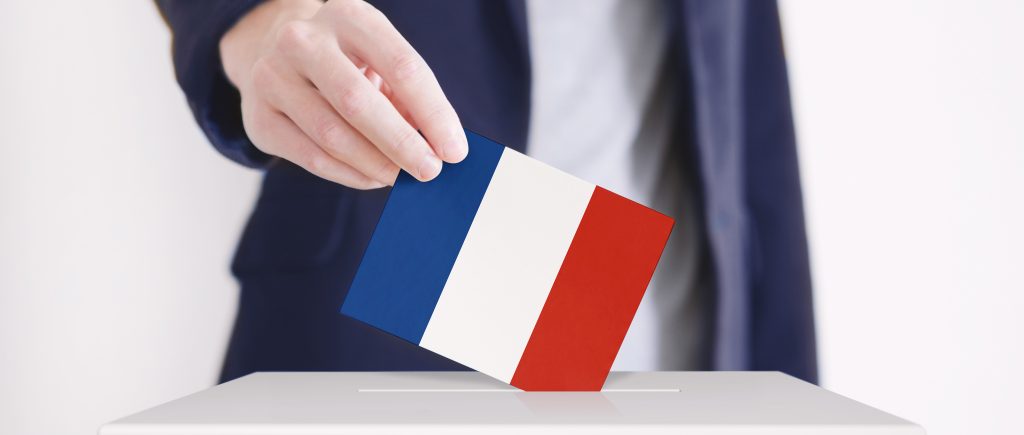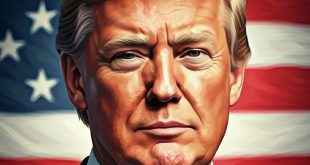The far-right in France is on the rise, according to the results of Sunday’s early elections. Marine Le Pen, the National Rally Party’s initial opponent of French President Emmanuel Macron in the previous presidential election, is leading this movement. Without a doubt, the success of this political movement would give rise to a number of worries about the political and economic future of France as well as potential developments that might occur and endanger the financial markets. It is these concerns that we are attempting to address in this report.
In the first round of the parliamentary elections, which President Macron called for after his alliance lost to the far-right coalition in the European Parliament elections, the opposition party received roughly 34% of the total votes cast. About 50 years after her father, Jean-Marie Le Pen, founded the party that led Le Pen in the 2018 presidential election, the National Rally, formerly the National Front, emerged victorious in the race for a majority of the French National Assembly. It defeated the Left Alliance, which garnered 28% of the vote, and the Macron-led Renaissance party, which garnered only 20% of the vote, eliminating it from the race in the second round of these elections.
Despite the National Rally’s unprecedented success, the French far-right has not yet determined its absolute majority. As a result, the party has appealed to French voters to give it an absolute majority in the National Assembly by casting ballots in the second round of elections. The National Rally party’s 28-year-old leader, Jordan Bardella, declared that the upcoming Sunday’s second round of legislative elections will be the most important in the Fifth French Republic’s history.
Markets Rejoice
The majority of investors in the markets quickly realized that the direct reaction of the Euro and European stocks to the results of the first round of early French elections was extremely negative, given the poor reputation that the far-right policies have in managing the economy. This had a negative impact on the markets overall. For the hard-line political movement, the final result is still up in the air. This conviction has led them to consider the possibility of striking a partisan political agreement that could ensure the maintenance, if only temporarily, of the moderate economic policies that the French centre has adopted. The Euro concluded Monday’s trading in an upward trend with a boost from developments on the political scene in France; raising speculation that the European economy could escape from the hands of the country’s extreme right.
The EUR/USD pair rose to 1.0725, compared to the previous daily close, which recorded 1.0711. The pair fell to its lowest level on the current trading day at 1.0715, compared to the highest level recorded at 1.0776. The result of the first round of the early French elections revealed the possibility that the extreme right-wing French National Rally would not succeed in obtaining an absolute majority in Parliament, which is a source of relief in light of Concerns about the possibility that the policies of this trend will hinder France’s economy from progressing.
The expectations that preceded the results of the first round indicated the possibility of reaching the “hung parliament” scenario or the victory of the National Rally party led by Marine Le Pen.
Bank stocks led the French stock rally as part of a rising wave that swept European stock markets in general, against a decline in French and European government bonds in general, as investors began to abandon them on Monday after the victory of the hard right in the first round of voting last Sunday without an absolute majority in the French National Assembly.
Despite the fears that hard-right policies carry within them – most notably concerns about economic policies – the emergence of the election results has alleviated the state of uncertainty that had dominated the markets before the first round.
We may see more progress for the shared currency and European stock exchanges – at least until the second round of these elections, which is scheduled to take place on July 7 – in the hope that the hands of the extreme right will not extend to economic policies through a political deal between the parties are awaited by observers.
With the decline in the possibility of the “Republican Front”, which was traditionally formed in the past, confronting the National Rally in France, it has become possible that the party of Jordan Bardella and Marine Le Pen will obtain a strong relative majority or even an absolute majority next Sunday.
However, the scenario of a dysfunctional National Assembly without the possibility of forming majority alliances between the three main parties also remains present, a scenario that would plunge France into the unknown.
At any rate, Macron lost his bet on dissolving the National Assembly after his party’s defeat in the European elections that took place on June 9.

 Noor Trends News, Technical Analysis, Educational Tools and Recommendations
Noor Trends News, Technical Analysis, Educational Tools and Recommendations




